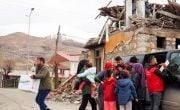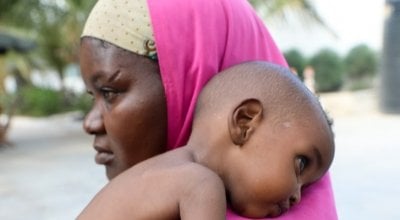
Read our 2024 annual report

Knowledge Hub
Why emergencies? Many of the countries we work in are susceptible to frequent natural disasters and outbreaks of conflict, resulting in already vulnerable people losing their homes and livelihoods.
In the immediate aftermath of an emergency, we provide life-saving support to families and communities. We then stay to help them get back on their feet, rebuilding livelihoods and infrastructure and working to reduce the risk and impact of future crises.
Our key focuses are:
- Respond rapidly in order to save lives and reduce suffering
- Improve access to food, healthcare and water
- Prevent and reduce the impact of emergencies





A closer look at our emergency programmes
We aim to contribute to lasting improvements in the lives of the extreme poor through the implementation of rapid responding, risk reduction and community resilient programmes. Here we spotlight three of our approaches.
Rapid emergency response
One of the main objectives of our emergency programme is to respond rapidly to emergencies in order to save lives and reduce suffering. For example, Concern launched its programme in Yemen in 2024 to meet the most urgent needs of the most vulnerable people. In our first year of operation we supported six health units, facilitating integrated health and nutrition services for over 29,400 people.
Disaster risk reduction
Community resilience
Organisations who fund us
Knowledge Hub resources on the theme of Emergencies

Other ways to help
Corporate support
Is your company interested in working together for a common cause?
Fundraise for Concern
From mountain trekking to marathon running, cake sales to table quizzes, there are lots of ways you can support our work.
Buy a gift
With an extensive range of alternative gifts, we have something to suit everybody.
Leave a gift in your will
Leave the world a better place with a life-changing legacy.
Volunteer with Concern
The lots of ways to get involved with our work as a volunteer
School fundraising
Without the generous support from schools, we wouldn't be able to do the work that we do.






